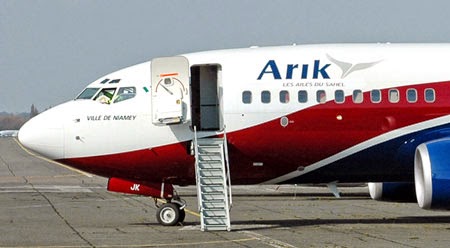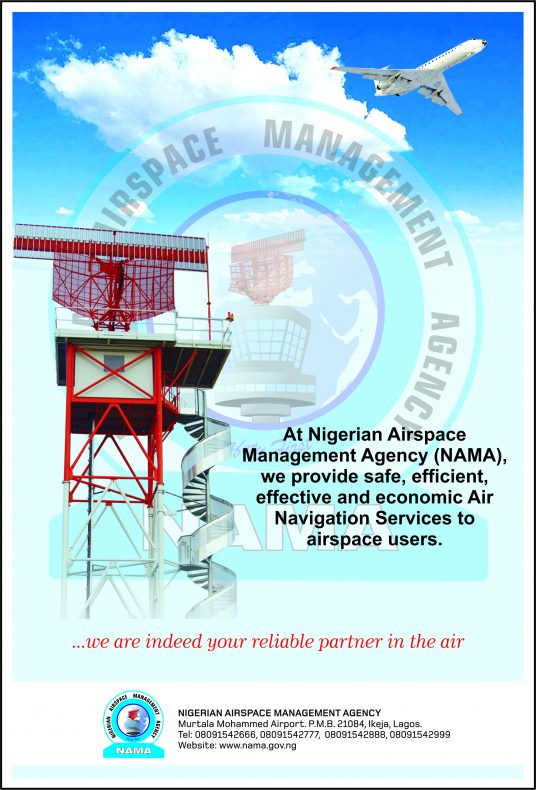WITH the price of Jet fuel at an all time high, airlines are finding it difficult to get the product for their operations and this has introduced further delay in the system.
Some airlines have had to delay flights while others cancel in a bid to combat the challenges they face.
As of today, Jet A1 also known as Aviation Fuel sells for N725 in Lagos, N740 in Abuja and N745 in Kano while other marketers have sold for N650 and N700 making the reach of the product near impossible and causing many airlines to go on panic mode in a bid to satisfy their passengers, some of whom have booked long before.
This staggering cost daily for certain airlines combined with the lull in passenger traffic and other factors is causing fears as airlines say they cannot break even under the current circumstances.
A typical one hour Lagos to Abuja flight using the Boeing 737-Classic is about 4500 litres give or take for the one leg flight and Nigerian airlines still use a lot of that aircraft type as it is yet to be completely phased out.
Meanwhile, some airlines in the country use as high as 80,000 litres for their operations daily while others use as much as 180,000 litres and above., all depending on their level of operations.
This brings fuel consumption at N715 litres for the 80,000 litres to N57,200,000 in Kano where the product sells for N745/ litre that same airline with same usage will spend N59, 600, 000 averagely every day.
On the same parameters, fuel consumption for the 180000 litres daily at N715 cost the airline N128, 700, 000 while at N745 the airline spends at least N134, 100, 000 daily.
Very recently, Ag. Secretary Aviation Fuel Market Association of Nigeria (AFMAN), Engr. John Adewole Abegunde argued on behalf of his association that Jet fuel be fully deregulated and called on the government to hands-off from all commercial related issues with regards the product.
This may have sparked off the statement credited to the airline Operators of Nigeria at the just concluded FAAN National Aviation Conference ( FNAC), who alleged three members of their ranks may soon go under, even then the price of Jet fuel sold for N607/litre.
They agreed that there is a global rise in the cost of the product but that Nigeria’s case becomes peculiar due to the weaker naira against the dollar..
However other oil- marketers have expressed opinions too as Major Oil Marketers Association of Nigeria ( MOMAN) Executive Secretary and Chief Executive Officer, Mr. Clement Isong said the challenge is two-pronged as forex to get the product is high and prices in the international market are high due to the Russian/Ukraine War.
He however surmised that apart from pricing, availability is also determined by business relationships between airline and marketer stressing that various airlines have different payment history and that while som pay ontime, there are others with a history of indebtedness and those who pay up on time on their credit are likely to receive favourable terms from their suppliers against airlines who owe.
Despite fuel pricing and availability, the fact that other fixed costs of these airlines from staff remuneration to schedule maintenance of equipment must be met have the airlines at sixes and sevens regards the issue of Jet A1.
The major question now is, as cost of jet A1 continues to gallop and prices of tickets remain the same, how do the airlines cope, knowing full well that a further increase in the ticket price may affect the ticket?
Recall, sometime in February, domestic airlines in Nigeria jacked up airfares over an100% as prices of economy class tickets now range from ₦50,000 and above all because of the same Jet A1 cost and availability, access to forex and other sundry reasons..
Tickets that hitherto sold from ₦27000- ₦29000 above doubled even then when the price of aviation fuel used to cost N410 in Lagos, N422 in Abuja and Port Harcourt and N429 in Kano per litre and the dollar, which sold for N580 and was as usual, in short supply.
So the burning issues remain, what will be the next move for airlines? And at a period like this when the government is planning on floating its own airline, would it be willing to let airlines go under and countless jobs be lost before it tries to arrest the situation? Or will said airline become operational under these circumstances?Â
As the days go by, it becomes harder to tell if the aviation industry in Nigeria will not buckle under all the pressure it is currently bearing.





















